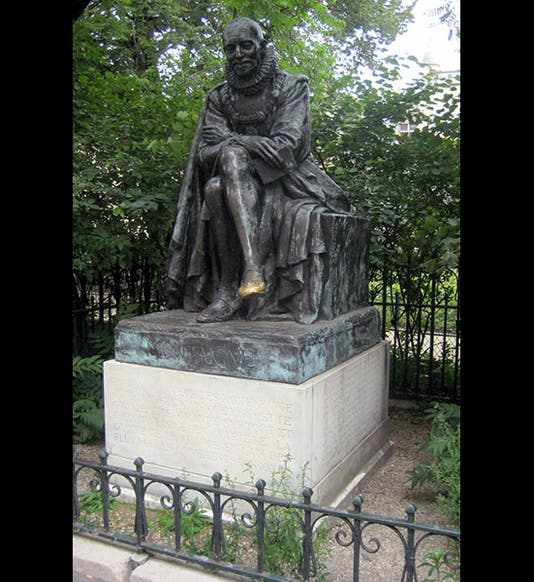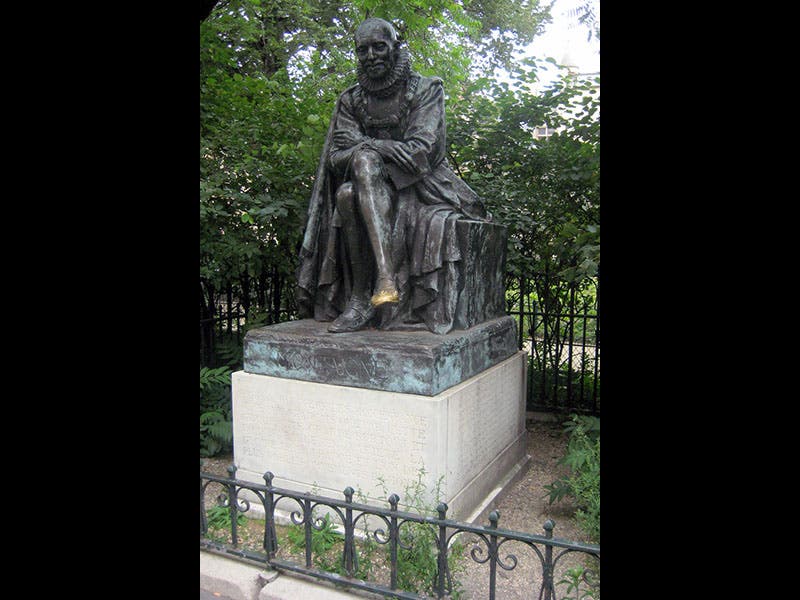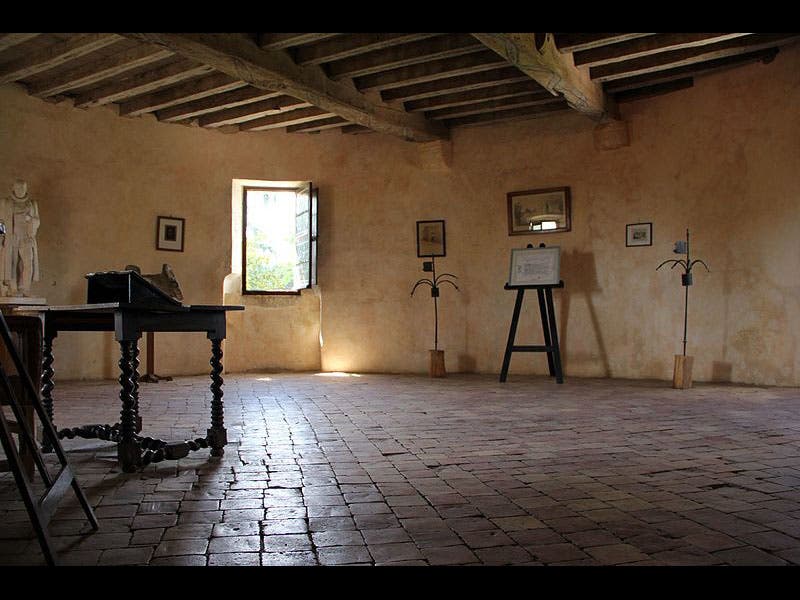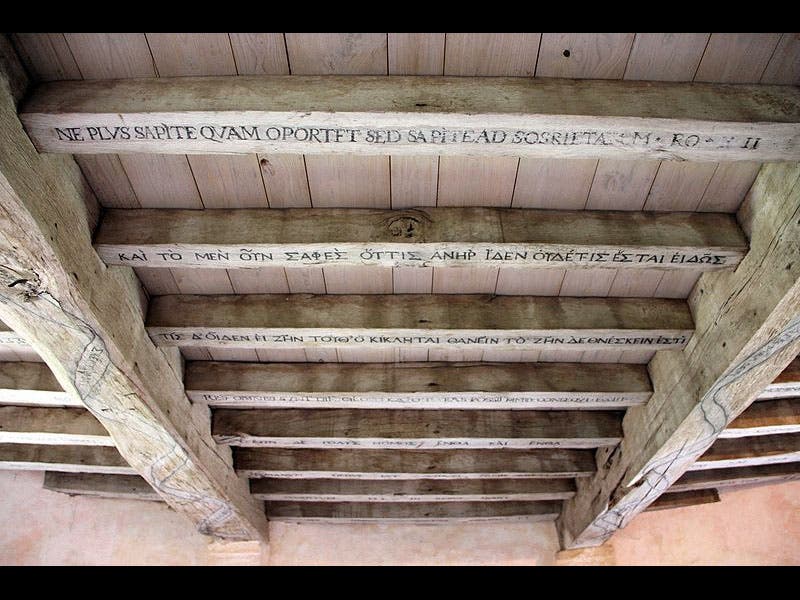Scientist of the Day - Michel de Montaigne
Michel de Montaigne, a French writer, died Sep. 13, 1592, at age 59. Montaigne was the originator of the literary genre known as the essay, with his collection of musings titled Essais, published in 1580 (essai meaning "try" or "attempt" in French). Basically, Montaigne filtered the world through himself, because, as he explained in defense, his "self" was the only thing he knew at all well. And he wasn't even sure of that. Because the other thing Montaigne founded was a revival of Greek skepticism. His motto was "Que sais-je?"--"What do I know?", and he railed constantly against the cocksure certainty with which many lived their lives. The more one knows, the less sure one should feel about that knowledge. Montaigne's age was ripe for skepticism; the once unified Church had fractured into a number of sects; the classical authority of Aristotle and Ptolemy was breaking down; new worlds had been discovered which were nowhere mentioned in ancient texts. Montaigne was just the first to realize that a crisis of certainty was upon us. His influence was immense; René Descartes' decision to doubt everything he had been taught and to start over with his own clear and distinct ideas was a direct result of the "skeptical crisis" inaugurated by Montaigne.
Montaigne retired to his estate in Bordeaux when he was 38 and spent 9 years in his library, writing the first edition of the Essais, which he enlarged and revised to the end of his life. The tower that housed his library still stands (second image). His writing desk sits where it used to sit, although the books are gone (third image). The most charming remainder, and reminder, of Montaigne’s life in the tower are the wooden ceiling beams, each one carved with an aphorism carefully chosen by Montaigne (fourth image). In the photo above, the nearest one visible is a quotation from the Vulgate New Testament, Romans 12:3 “No man should think of himself more highly than he ought to think, but should think soberly.” The next one is in Greek, from Sextus Empiricus “And indeed no man has ever known anything surely, and no one ever will.” And the third, from Euripides: “Who knows if what we call dying is not living, and living, dying.” Montaigne did not carve any of his own aphorisms into the ceiling but he could have, perhaps: Peu d’hommes ont esté admirés par leurs domestiques," usually translated as "No man is a hero to his own valet."
There is a statue of Montaigne in Paris, just across from the Sorbonne (first image). Students customarily rub his shoe for good luck. As superstitions go, this is not a bad one, if it keeps students continuously aware of the genius of Montaigne.
Dr. William B. Ashworth, Jr., Consultant for the History of Science, Linda Hall Library and Associate Professor, Department of History, University of Missouri-Kansas City. Comments or corrections are welcome; please direct to ashworthw@umkc.edu.










